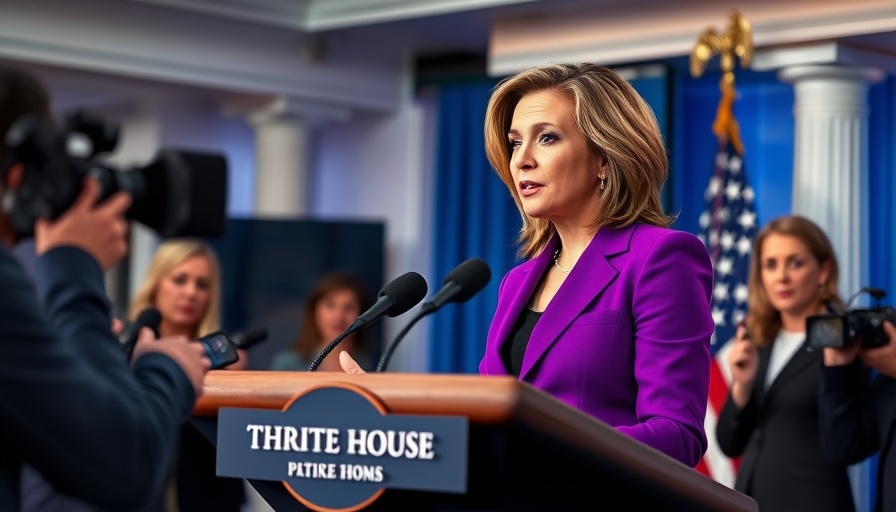
Trump's Unprecedented Control Over D.C.: An Analysis
In a bold move, President Donald Trump has declared his intention to federalize the police in Washington, D.C., while deploying around 800 National Guard troops to combat what he describes as a surging crime wave in the nation's capital. This announcement comes amid a complicated backdrop, as crime rates in the city recently fell to a 30-year low. The apparent disparity between Trump's claims and the statistics raises questions about the motivations behind this federal intervention.
Understanding the Public Safety Emergency
In his announcement, Trump labeled D.C. as "one of the most dangerous cities anywhere in the world," prompting a declaration of a public safety emergency. Attorney General Pam Bondi will take command of the Metropolitan Police Department, with assurances that she will eradicate crime immediately. Critics, however, including D.C. officials and residents, argue that such drastic measures appear exaggerated given the latest crime statistics. This dichotomy calls into question the administration's legitimacy and the potential escalation of tensions between local and federal governance.
Historical Context: The Balance of Power
Trump's actions reflect a meaningfully unprecedented intervention in local governance, as the D.C. Home Rule Act outlines federal authority over the district's police. Historically, we have seen tensions heighten in politically charged environments, making this an essential moment for analyzing power dynamics between federal and local authorities. Critiques from D.C. delegate Eleanor Holmes Norton highlight a growing sentiment that Trump's approach is both "counterproductive" and a "historic assault" on home rule—a principle advocating for a self-governing district.
Crime Trends: A New Perspective
While the administration asserts that swift military action is necessary, recent crime statistics tell a different story. The Justice Department reports a notable decline in crime rates, painting a favorable picture of D.C.'s safety. This contradiction may fuel resentment among residents and policymakers alike, who question the allocation of military resources in a city claiming improvements in public safety. Providing a thorough examination of the data may help inform a more collaborative approach to crime fighting.
Public Reaction: Voices of Opposition
The backlash from D.C. officials echoes throughout social media and news platforms. D.C. Attorney General Brian Schwalb's statements describe the federal decisions as "unprecedented, unnecessary, and unlawful," prompting discussions about civil rights and governance. With community perspectives in mind, it's imperative to consider how residents feel about increased military presence in their neighborhoods.
The Political Implications Moving Forward
As we look ahead, the administration's actions could redefine relationships between local governments and the federal presence. With reactions ranging from approval among supportive factions to widespread condemnation from opponents, the ramifications of this decision may stretch beyond immediate crime-fighting measures into the next election cycle. Analysts will be keen to observe whether this federalization strategy builds momentum for or against Trump in 2025.
Conclusion
This extraordinary episode in D.C. governance illustrates a significant conflict between local authority and federal enhancement, complicated by varying crime narratives. Whether this intervention leads to sustainable improvements in community safety or exacerbates tensions between residents and authorities remains to be seen.
Are you interested in cutting through ambiguity in your business or marketing strategies? Discover how hiring a fractional CMO, like Ezekiel Guichard, can streamline your operations and eliminate overhead costs without sacrificing quality. Reach out today to learn more about outsourced CMO services that can drive results and growth.
 Add Row
Add Row  Add
Add 




Write A Comment